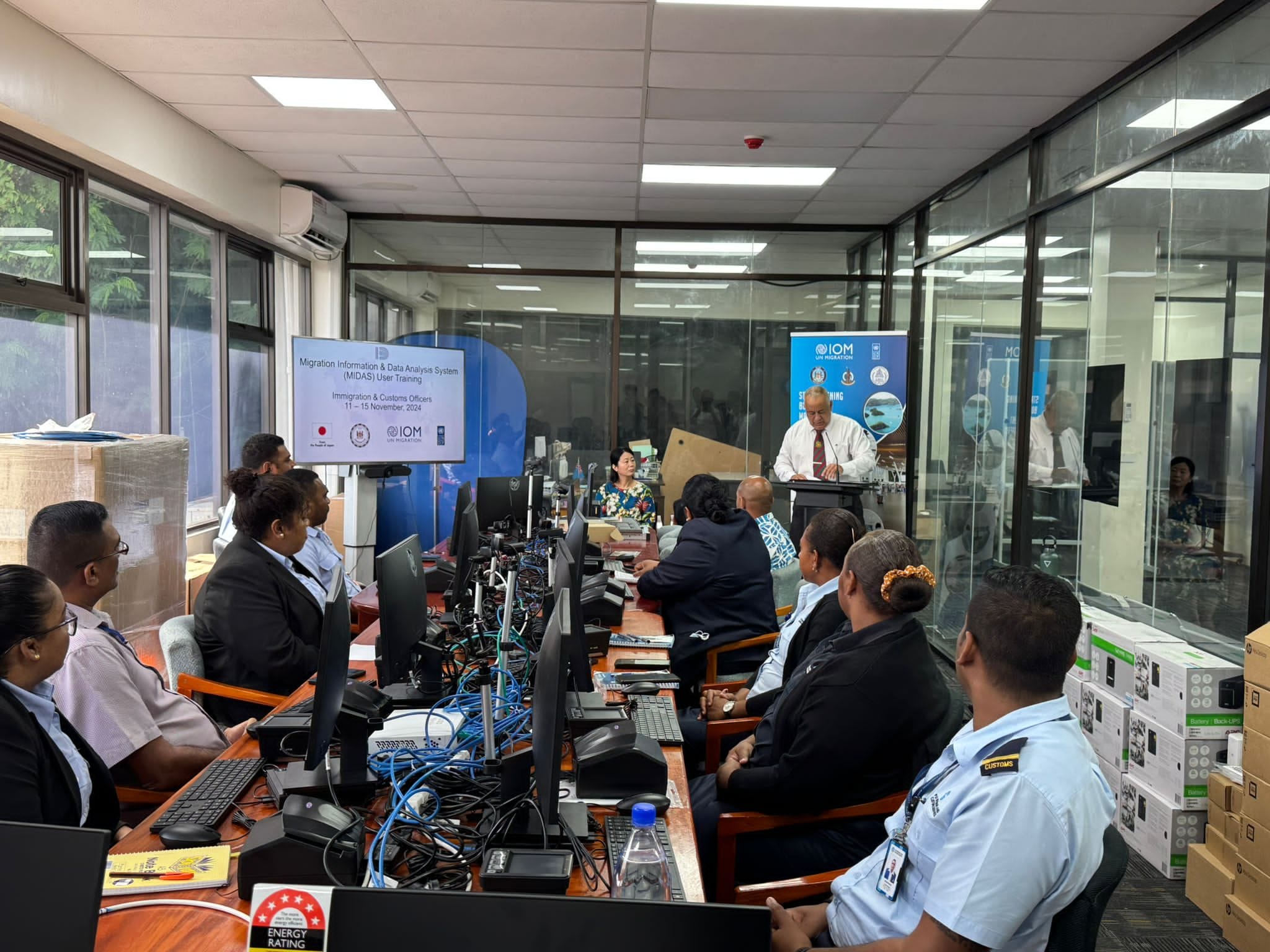

The Fiji government warns of rising online visa scams targeting travellers.
Photo/Fiji Immigration Department
Fiji warns travellers against fake visa websites amid scams
Officials urge caution and advise verifying the authenticity of immigration sites to prevent personal information theft.


Tonga and Sāmoa get their Sevens Rugby campaign underway

Pacific football makes history as OFC Pro League kicks off in NZ



Tonga and Sāmoa get their Sevens Rugby campaign underway

Pacific football makes history as OFC Pro League kicks off in NZ

As electronic visas and online travel authorisations become more popular, there is a rise in online scams targeting travellers, the Fiji government warns.
The government states that many people are being deceived by fake websites, misleading ads, and sites that pretend to be official government platforms.
This week, Fiji's Immigration Ministry issued a warning about a fake website that claims to be the official platform for visa applications to Fiji.
The government states that this site poses a serious risk to public safety and national security.
Since it appeared on June 24, 2025, this scam site has been collecting personal information from users who think they are just applying for a visa.
In a statement, Aliki Salusalu, the Permanent Secretary of Immigration, criticised the "deceptive" website, saying it is not connected to the Fijian government or its Immigration Ministry.

Fijian immigration officials undergo training in Suva. Photo/Fiji Immigration Department
“This unauthorised site was deliberately created to mislead and defraud individuals,” Salusalu says, emphasising the ministry’s dedication to protecting the public from such cyber threats.
The Fiji government is working with law enforcement and cybersecurity experts to investigate the fake site and reduce its risks.
To avoid being tricked, people are advised to check that any immigration website ends with ".gov.fj." Only websites that have this ending are considered legitimate and recognised by the Fijian government.
Other countries, like the United Kingdom, are also experiencing problems with fake websites as they begin to use their own electronic travel permits.
The scam affects many nations that issue similar electronic visas or travel authorisations, including the United States, Canada, Australia, and New Zealand.
In May, New Zealand announced that it would allow more countries to use their e-Gates, which speed up the entry process at the airport.
These are available in major New Zealand airports, but travellers must be at least 10 years old and have a valid electronic passport.
So, how can you tell if a website is a scam?
One expert shared a simple tip: look for the word "Ad" in a small green box next to the link on Google search results. This indicates that someone is paying to promote that website. Genuine government visa websites won’t have this "Ad" label next to them.